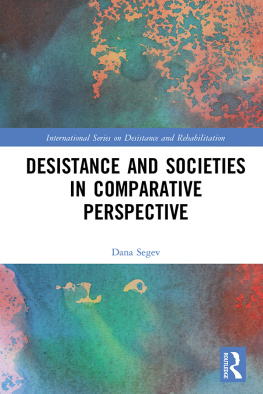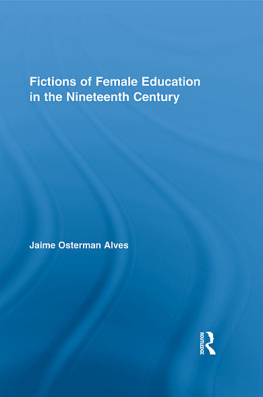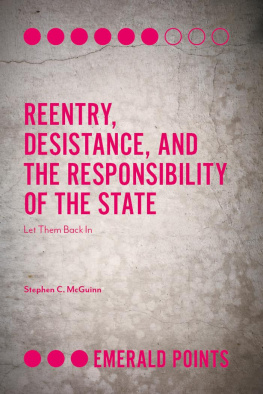
Penal Cultures and Female Desistance
This book makes a unique contribution to the internationalisation of criminological knowledge about gender and desistance through a qualitative cross-national exploration of the female route out of crime in Sweden and England. By situating the female desistance journey in diverse penal cultures, the study addresses two major gaps in the literature: the neglect of critical explorations of gender in desistance-related processes, and the lack of internationally comparative perspectives on the lived experience of desistance.
Grounded in a feminist methodology underpinned by a critical humanist perspective this book draws on 24 life-story narrative interviews with female desisters across Sweden and England. The discussion covers departure points, qualitative experiences of criminal justice, as well as barriers and ladders in the female route out. While some cross-national symmetry is detected, particularly in the areas of victimisation and issues around short custodial sentences, overall the findings indicate that diverse macro-processes and models, especially in terms of inclusive versus exclusive penal cultures, effectually trickle down to the women in this study and produce different micro-experiences of desistance.
Providing new qualitative evidence of the Nordic Exceptionalism thesis, this book finds that, comparatively, the Swedish model offers a macro-context, supported and reflected in allied meso-practices, which is more conducive to the formation of female desistance narratives. This unique comparative study marks a step-change in desistance literature and will be essential reading for those engaged in the disciplines of penology, rehabilitation, gender and crime, and offender management.
Linna sterman is an early career researcher and lecturer at the University of Greenwich. Her research interests revolve around gender and crime, desistance, qualitative comparative criminology, Nordic criminal justice and restorative interventions. Completing her doctorate in Criminology at the University of Surrey in early 2016, Linna has been involved in a number of research projects focusing on womens experiences of justice in various cultures and contexts over the last 10 years. She is a passionate criminologist and a social justice optimist, and dabbles with music-making in her spare time.
International Series on Desistance and Rehabilitation
The International Series on Desistance and Rehabilitation aims to provide a forum for critical debate and discussion surrounding the topics of why people stop offending and how they can be more effectively reintegrated into the communities and societies from which they came. The books published in the series will be international in outlook, but tightly focused on the unique, specific contexts and processes associated with desistance, rehabilitation and reform. Each book in the series will stand as an attempt to advance knowledge or theorising about the topics at hand, rather than being merely an extended report of a specific research project. As such, it is anticipated that some of the books included in the series will be primarily theoretical, whilst others will be more tightly focused on the sorts of initiatives which could be employed to encourage desistance. It is not our intention that books published in the series be limited to the contemporary period, as good studies of desistance, rehabilitation and reform undertaken by historians of crime are also welcome. In terms of authorship, we would welcome excellent PhD work, as well as contributions from more established academics and research teams. Most books are expected to be monographs, but edited collections are also encouraged.
General Editor
Stephen Farrall, University of Sheffield
Editorial Board
Ros Burnett, University of Oxford
Thomas LeBel, University of Wisconsin-Milwaukee, USA
Mark Halsey, Flinders University, Australia
Fergus McNeill, Glasgow University
Shadd Maruna, Rutgers University, USA
Gwen Robinson, Sheffield University
Barry Godfrey, University of Liverpool
12. Womens Transitions from Prison
The Post-Release Experience
Rosemary Sheehan and Chris Trotter
13. Penal Cultures and Female Desistance
For a full list of titles in this series, please visit: https://www.routledge.com/criminology/series/ISODR
Penal Cultures and Female Desistance
Linna sterman
First published 2018
by Routledge
2 Park Square, Milton Park, Abingdon, Oxon, OX14 4RN
and by Routledge
711 Third Avenue, New York, NY 10017
Routledge is an imprint of the Taylor & Francis Group, an informa business
2018 Linna sterman
The right of Linna sterman to be identified as author of this work has been asserted by her in accordance with sections 77 and 78 of the Copyright, Designs and Patents Act 1988.
All rights reserved. No part of this book may be reprinted or reproduced or utilised in any form or by any electronic, mechanical, or other means, now known or hereafter invented, including photocopying and recording, or in any information storage or retrieval system, without permission in writing from the publishers.
Trademark notice: Product or corporate names may be trademarks or registered trademarks, and are used only for identification and explanation without intent to infringe.
British Library Cataloguing in Publication Data
A catalogue record for this book is available from the British Library
Library of Congress Cataloging in Publication Data
A catalog record for this book has been requested
ISBN: 978-1-138-28416-6 (hbk)
ISBN: 978-1-315-26973-3 (ebk)
Its really important for me to not live in exclusion.
I dont want to shut myself out anymore.
I want to be a part of Swedish history.
I want a Svensson life,
I want to have children,
I want a Volvo.
Give me a dog,
a villa,
a place where I can
wakeup at the kitchen table
and look out through the window.
Where I could just sit and sip my cup of coffee.
Thats all I ever wanted.
Everything,
give me
everything normal.
Thats all.
(Jasmin, 19862013)
Figure
Tables
The International Series on Desistance and Rehabilitation aims to provide a forum for critical debate and discussion surrounding the topics of why people stop offending and how they can be more effectively reintegrated into the communities and societies from which they came. The books published in the series will be international in outlook, but tightly focused on the unique, specific contexts and processes associated with desistance, rehabilitation and reform. Each book in the series will stand as an attempt to advance knowledge or theorising about the topics at hand, rather than being merely an extended report of a specific research project. As such, it is anticipated that some of the books included in the series will be primarily theoretical, whilst others will be more tightly focused on the sorts of initiatives which could be employed to encourage desistance. It is not our intention that books published in the series be limited to the contemporary period, as good studies of desistance, rehabilitation and reform undertaken by historians of crime are also welcome. In terms of authorship, we would welcome excellent PhD work, as well as contributions from more established academics and research teams. Most books are expected to be monographs, but edited collections are also encouraged.









